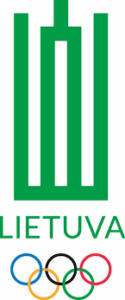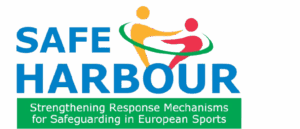The National Olympic Committee of Lithuania (NOC Lithuania) is pleased to be a partner in the new Erasmus+ Project named “Strengthening Response Mechanism for Safeguarding in European Sports” (SAFE HARBOUR), which is coordinated by the European Olympic Committees EU Office (EOC EU Office). This initiative is dedicated to enhancing safeguarding mechanisms across European sport, creating safer environments for all.
About NOC Lithuania

NOC Lithuania is the governing body responsible for organising and promoting Olympic sports in Lithuania. The NOC of Lithuania's primary aims include the development of sports in the country, fostering Olympic values such as excellence, respect, and friendship, and supporting athletes in their pursuit of Olympic success. The NOC is composed of 67 voting members from national sports federations, Olympic athletes, and other stakeholders who contribute to the promotion and growth of Olympic sports in Lithuania. The NOC also collaborates with international Olympic bodies and works on initiatives to encourage sports participation at all levels of society. Through its efforts, the NOC of Lithuania seeks to enhance the nation's sporting achievements, promote physical activity, and represent Lithuania's interests on the global Olympic stage.
The National Olympic Committee (NOC) of Lithuania has made significant strides in addressing safeguarding in sports, prioritising the safety and well-being of athletes and entourage. In line with the global movement to promote safe sports environments, the NOC has implemented various initiatives aimed at preventing abuse, harassment, and discrimination in Lithuanian sports. In 2020 (August 13th) NOC Executive Board adopted “Harassment, sexual harassment and violence in Lithuanian NOC prevention rules”. Based on Rules free legal assistance was offered and provided by the professional association of lawyers "IUSTUM". NOC has made an agreement with this company in order to keep anonymity and offer legal assistance for all athletes, sports federations, coaches, etc. Since 2023 NOC Lithuania has IOC Certified Safeguarding Sport Officer within its staff members. Also, NOC of Lithuania is part of the Erasmus+ projects, etc. GUARD and SAFE HARBOUR and is willing to prepare and adopt needed safeguarding policy.
The role of NOC Lithuania within the SAFE HARBOUR project
Within the SAFE HARBOUR project, NOC Lithuania will play a critical role in tailoring the European Response framework to its national context. Responsibilities include drafting a National Strategy to guide safeguarding actions, delivering mandatory training for the leadership and National Federations, and hosting a National Multiplier Event to raise awareness among stakeholders. Additionally, NOC Lithuania will engage in peer-to-peer roundtables, contribute to thematic seminars, and disseminate the project results through various channels. By actively participating in all project activities, NOC Lithuania will help ensure the successful implementation and sustainability of safeguarding measures.
Background information on the SAFE HARBOUR project
The SAFE HARBOUR project, short for “Strengthening Response Mechanisms for Safeguarding in European Sport”, is a 30-month project co-funded by the European Union through the Erasmus+ Sport Programme 2024. Coordinated by the EOC EU Office, the consortium includes Thomas More and Asser Institute as experts on safeguarding, human rights and law, 2 International Federations (International Biathlon Union and International Ice Hockey Federations), and 20 National Olympic Committees (Belgium, Bosnia and Herzegovina, Croatia, Cyprus, Czechia, Denmark, Germany, Hungary, Kosovo, Latvia, Lithuania, Luxembourg, Malta, Montenegro, Norway, Poland, Portugal, Romania, Slovakia and Slovenia). Additionally, the International Olympic Committee (IOC) is involved as an outside resource.
The project seeks to strengthen the capacity of European NOCs and Federations to address safeguarding concerns by identifying gaps, developing a European Response framework, and fostering collaboration. This framework will be adapted to national contexts, complemented by training and awareness initiatives to enhance safeguarding measures at both national and European levels. Therefore, SAFE HARBOUR aims to equip partner NOCs and Federations with the tools and confidence to implement effective safeguarding measures while establishing a robust support network for Safeguarding Officers and laying the groundwork for a future IOC Regional Safeguarding Hub.

![]()